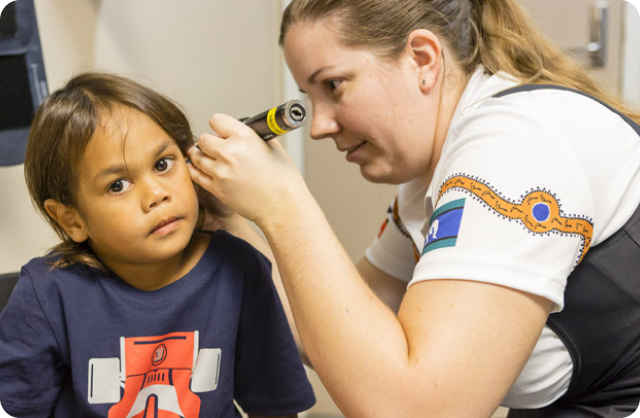-
About the Deadly Ears program
Find out what we're doing to reduce middle ear disease and hearing loss Aboriginal and Torres Strait Islander children living in Queensland.
-
Deadly Ears - for health professionals
Learn how to assess and manage hearing health, and when to refer a child to the Deadly Ears Program.
-
Deadly Ears - for families and teachers
Learn how to identify and support children with middle ear disease.
Reducing middle ear disease
Deadly Ears proudly supports communities around Queensland to reduce the impact of middle ear disease. All Aboriginal and Torres Strait Islander children deserve to have healthy ears.
Our program helps reduces the number of children with middle ear disease resulting in hearing loss.
We're proud to deliver our services on Country across Queensland.

Our Deadly Ears turtle artwork
The artwork featured on our pages is Margie Lankin’s interpretation of middle ear disease.
The turtle represents the ear and was chosen as it's a silent creature swimming around in the rivers and oceans. No one knows turtles are there unless they're looking for them, and like a child with an ear infection or hearing loss, middle ear disease is a silent disease—you don’t know it’s there unless you look.
The circles around the turtle are the referral pathways. The footsteps are the children being referred to health care services and the health care providers who deliver services in the communities.
There are also figures of people in the painting. One group is health care providers consulting with community members about the types of child health services to be provided in the communities. The other group is parents teaching their children to let someone know if they have any problems with their ears and how to take care of them if they have hearing loss or an ear infection.
The dots around the painting represent the Aboriginal (ochre red, black and ochre yellow) and Torres Strait Islander (blue, green and white) peoples.